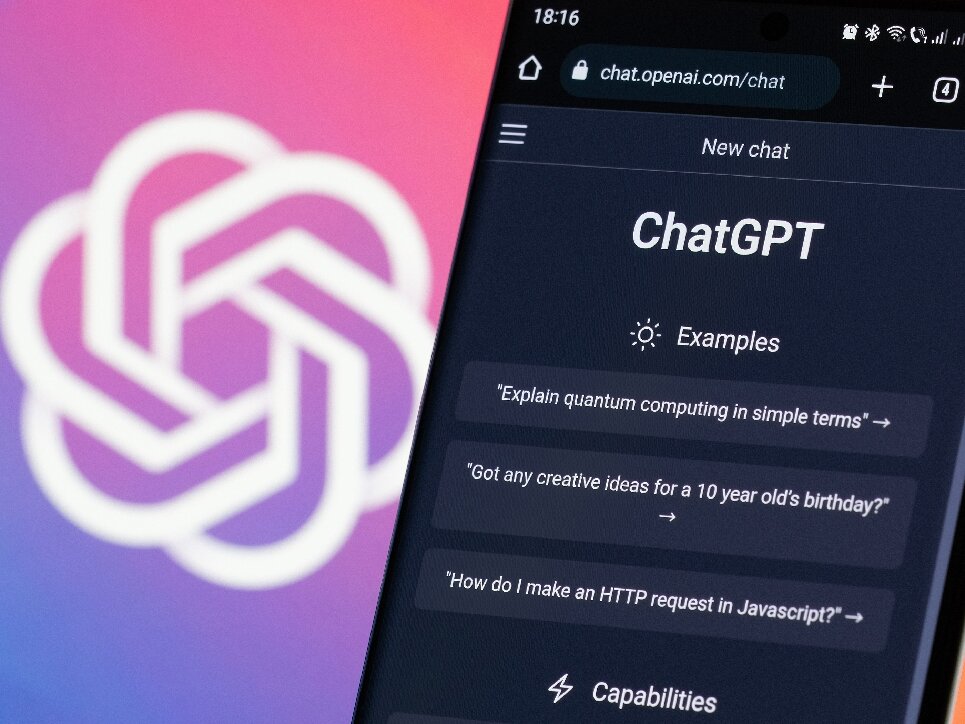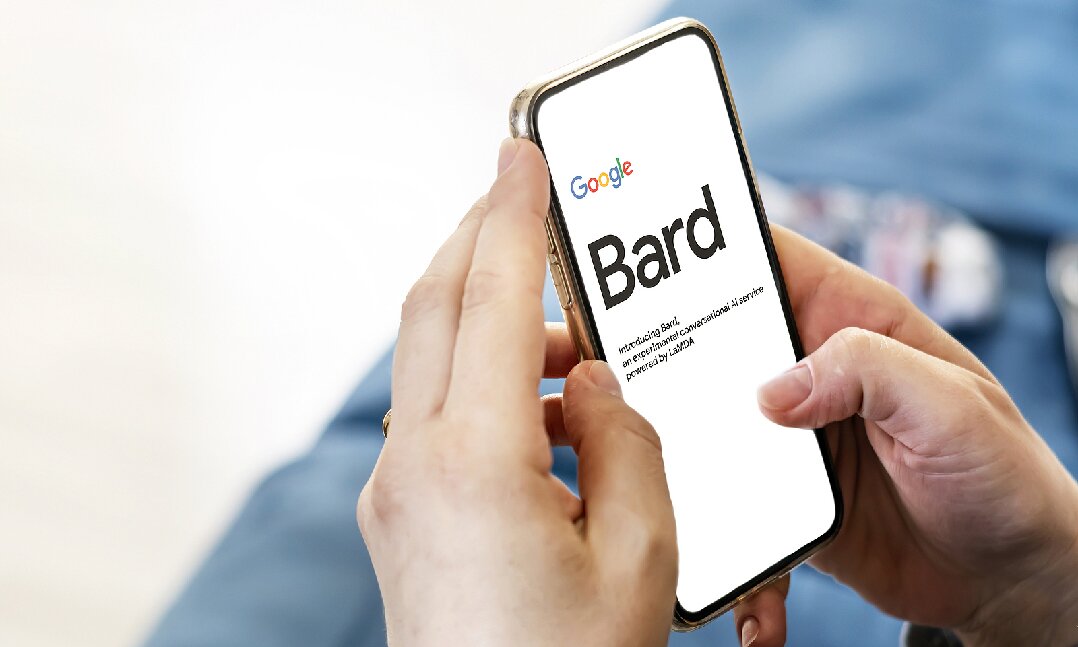Comments
- No comments found

In the evolving digital landscape, the term “artificial intelligence” (AI) is no longer an alien concept.
What's more intriguing is the advent of generative AI that's poised to revolutionize various business sectors.
However, the inevitable question arises: Will the rise of generative AI pose a threat to the job market? As a futurist and Anticipatory Thinker, I propose that generative AI will not eliminate jobs but instead transform the nature of human work and create new roles that offer significant advantages for businesses in all industries!
In turn, this will lead to logical anticipatory action and launch organizations into the future in proactive ways.
Before even the most Anticipatory Leader reads the aforementioned declaration and tries to leverage generative AI to their organization's advantage, let’s first take a step back here and define what generative AI is exactly.

In essence, generative AI represents a distinct subset within the broader realm of conventional artificial intelligence applications that are commonly encountered and recognized. Instead, it uses human input to understand and learn from queries in order to generate new content such as text, images, and other media.
ChatGPT from OpenAI is an instance of generative AI that serves as a prominent illustration in the real world. This emerging application has swiftly gained prominence in the digital realm. Essentially, ChatGPT operates by receiving inquiries or prompts from humans and utilizes existing datasets and past queries to generate content in response.
Unfortunately, many businesses and individuals are viewing ChatGPT and other such applications as a disruption — a threat to the status quo. They believe that jobs will be lost and whole industries disrupted. And while they aren’t entirely wrong, I do wish to challenge the overall negativity of that notion!
Generative AI is a Hard Trend without question, as it is a future certainty that it is not going away, will not slowdown in its development, and will only increase in usage and adaptation for all kinds of purposes, just as we have incorporated other types of AI into our lives already.

Bigger technology companies have already quickly adapted to the Hard Trend of generative AI, leveraging the Soft Trend of how generative AI is used to their advantage. For instance, Google recently created its own AI chatbot called Bard in response to ChatGPT, while Snapchat incorporated a generative AI application into its app called My AI.
As such, by not embracing this new technology, you are only opening your business up to disruption in both small and quantifiable ways.
One major step in the right direction is to stop viewing generative AI as something that will just fizzle and fall away eventually. The current application of generative AI in ChatGPT is only the beginning and may dissipate; however, more applications will arise, even right in your industry. It is up to you to look at it for what it really is: The future of driving innovation and efficiency.
Generative AI has the ability to significantly enhance innovation in product design and development. AI algorithms can analyze vast amounts of data lightning fast in comparison to how the human mind processes it. In doing so, generative AI identifies patterns and generates innovative ideas that humans may overlook due to any number of factors, whether that be burnout or misunderstandings.
The Chinese company Haomo recently launched an AI driving platform called DriveGPT that is more efficiently predicting driver behavior and furthering the advancement of autonomous driving features. With this generative AI, DriveGPT can better synthesize data for more comprehensive cognitive decision-making by quickly generating numerous real-world driving scenarios.
This use case can also be applied to other industries, streamlining processes by automating repetitive tasks that wear down the patience of a human being.
AI algorithms can generate reports, create content, or even code software, freeing up human workers for more creative and strategic roles. By reducing the time spent on mundane tasks, businesses ultimately increase productivity and efficiency in ways many wish existed years prior!
In the realm of customer service, generative AI is an iconic way to provide personalized interactions by leveraging customer data and predicting customer behavior. This is something that is currently being done by the company Cogito. AI-powered chatbots can handle multiple queries simultaneously, offer instant responses, learn from past interactions to improve future responses, and use a specific tone of voice and unique words.
Especially with regard to that last example, I know there are many going “hey, that’s replacing my job. You said it wouldn’t eliminate jobs!”

In many cases, all generative AI eliminates is the current nature of some jobs. For example, while the demand for human presence in customer service careers will persist, the requirement to work overnight shifts to handle helpline inquiries will diminish.
The fear that generative AI will render humans jobless on all fronts is based on the misconception that generative AI is a replacement rather than a tool. While generative AI will indeed automate certain tasks, it does not necessarily lead to widespread job loss. As AI takes over repetitive tasks, it frees up human workers for roles that require unique human skills, including critical thinking, creativity, and emotional intelligence.
Generative AI can aid in decision-making by providing data-driven insights quickly. In turn, businesses can make more informed decisions and use those results creatively! Now, humans can save their skills and energy for where it really counts while staying ahead of the competition.
Strategic implementation of generative AI offers numerous benefits to businesses, encompassing innovation, efficiency, improved customer experience, and informed decision-making. Interestingly, the capacity of generative AI to personalize customer experiences aligns with my concept of anticipatory thinking.
However, the crucial aspect, particularly when utilizing it in an anticipatory manner, is to perceive generative AI as a tool, much like an office worker views their email or a plumber views a pipe wrench. The integration of generative AI should aim to augment human skills instead of replacing them. This initiative begins with you, as a business leader, seeking ways to incorporate AI and leverage its potential alongside your workforce, without eliminating routine tasks or downsizing your team.
As generative AI transforms the landscape of work, jobs will naturally evolve, and job descriptions will undergo changes. However, the demand for human talent will forever endure. Therefore, it is essential to embrace an anticipatory mindset today, seeking innovative ways to harness the potential of both human capabilities and generative AI.
Take your business to new heights with Daniel Burrus's strategy session on Unlocking the Power of AI. Assess your processes, identify areas for AI impact, and overcome potential challenges. Engage your team and gain an understanding of the benefits and hurdles of AI integration. Don't miss this opportunity to unlock the power of AI and propel your business forward.
Daniel Burrus is considered one of the world’s leading futurists on global trends and innovation. The New York Times has referred to him as one of the top three business gurus in the highest demand as a speaker. He is a strategic advisor to executives from Fortune 500 companies, helping them to accelerate innovation and results by develop game-changing strategies based on his proven methodologies for capitalizing on technology innovations and their future impact. His client list includes companies such as Microsoft, GE, American Express, Google, Deloitte, Procter & Gamble, Honda, and IBM. He is the author of seven books, including The New York Times and Wall Street Journal best-seller Flash Foresight, and his latest book The Anticipatory Organization. He is a featured writer with millions of monthly readers on the topics of innovation, change and the future and has appeared in Harvard Business Review, Wired, CNBC, and Huffington Post to name a few. He has been the featured subject of several PBS television specials and has appeared on programs such as CNN, Fox Business, and Bloomberg, and is quoted in a variety of publications, including The Wall Street Journal, Financial Times, Fortune, and Forbes. He has founded six businesses, four of which were national leaders in the United States in the first year. He is the CEO of Burrus Research, a research and consulting firm that monitors global advancements in technology driven trends to help clients profit from technological, social and business forces that are converging to create enormous, untapped opportunities. In 1983 he became the first and only futurist to accurately identify the twenty technologies that would become the driving force of business and economic change for decades to come. He also linked exponential computing advances to economic value creation. His specialties are technology-driven trends, strategic innovation, strategic advising and planning, business keynote presentations.
Leave your comments
Post comment as a guest